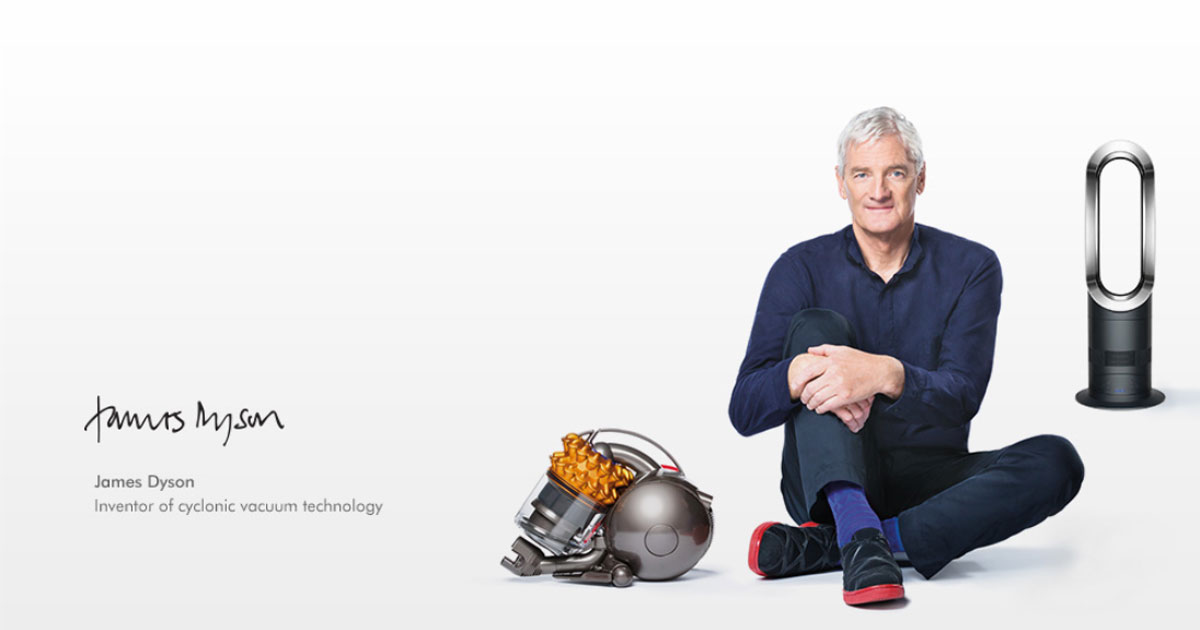Talk about irony.
Brexit supporter
Dyson, a British electric appliance maker, has picked Singapore as the site for its first electric car plant.
But the announcement on Tuesday, Oct. 23, has sparked criticism of Dyson's billionaire inventor-founder, James Dyson, 71, for not investing more in British manufacturing, especially so, when he was one of the prominent and vocal Brexit supporters.
Proponents of Brexit had argued that leaving the European Union would protect jobs and British interests, which will resurrect the economy.
This latest announcement ends hopes for a site in Britain.
"Not putting where his mouth is"
An anti-Brexit campaign group, Best for Britain, called the Dyson move to Singapore "astonishing".
"He's snubbed Britain for Singapore," the group tweeted.
James Dyson ranks amongst Brexit's most prominent supporters, but today it's revealed that he's snubbed Britain for Singapore, opting to build his electric car there instead. Astonishing.https://t.co/qPUpdu4Voe
— Best for Britain (@BestForBritain) October 23, 2018
Opposition Labour MP Ian Murray, said: “When even someone who claims there will be a resurgence in British manufacturing after Brexit isn’t prepared to put his money where his mouth is, it raises serious questions about the future of our economy and the impact on jobs and livelihoods as a result of Brexit.”
British reactions to getting snubbed were less than subtle:
So that well known patriot, Dyson, has chosen to build electric cars in Singapore.
— Siob, Princess of Yorkshire #FBPE #FBPEGlobal #FBR (@Sillyshib) October 23, 2018
😐
Hang on! James Dyson campaigns for #Brexit and then invests in Singapore?! pic.twitter.com/0tFBVnaWHA
— Jo Darby (@JoDtw) October 23, 2018
If James Dyson is so patriotic and in favour of Brexit, why has he just announced he will be building his new electric cars in Singapore?
— Paddletramp 🕷 (@newsboy23) October 23, 2018
Singapore welcomes Dyson
Singapore, on the other hand, has welcomed the decision.
Prime Minister Lee Hsien Loong said Dyson's move here will see car assembly return to the city-state for the first time since the 1980s.
"Now we will manufacture cars again, except this time greener, better, and more high-tech!" he wrote on his Facebook page.
Dyson chief executive Jim Rowan said in a statement: "Our existing footprint and team in Singapore, combined with the nation's significant advanced manufacturing expertise, made it a frontrunner. Singapore also offers access to high-growth markets as well as an extensive supply chain and a highly-skilled workforce."
"Singapore has a comparatively high cost base, but also great technology expertise and focus. It is therefore the right place to make high quality technology loaded machines, and the right place to make our electric vehicle," Rowan said.
The company already has production facilities in Malaysia and Singapore.
Singapore factory to complete in 2020
The serial entrepreneur, who founded Dyson, announced his decision to launch electric cars in 2017.
Dyson told Agence France-Presse in an interview earlier in 2018 that electric cars were already available to order and the manufacturing location would be either in Britain or Asia.
Dyson, a vocal supporter of the campaign to leave the EU, said he was confident the EU and Britain would reach an agreement on free trade after Britain leaves the bloc.
"I think it would be hurtful to both sides not to do that," he said.
The Singapore factory is scheduled for completion in 2020.
The company is aiming to launch electric vehicles in 2021, as part of a £2.5 billion (S$4.5 billion) global investment drive in new technology.
The appliance manufacturer is currently known for its novel, high-end and state-of-the-art cordless vacuum cleaners, blade-less fans and futuristic hair dryers.
International operations
Dyson employs more than 12,000 people across the world, including 4,800 in Britain.
In Singapore, Dyson already employs around 1,100 people at its new Singapore Technology Centre at Science Park One and its Advanced Manufacturing Centre at West Park where it makes electric motors.
The company said that 2017 operating profit surged by almost one-third to around £800 million (S$1.4 billion).
Revenues increased 40 percent to £3.5 billion (S$6.3 billion).
Dyson saw strong growth in countries such as China, India, Japan, Korea and Taiwan.
If you like what you read, follow us on Facebook, Instagram, Twitter and Telegram to get the latest updates.
